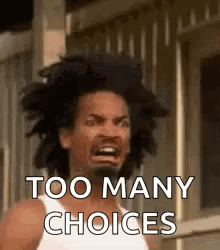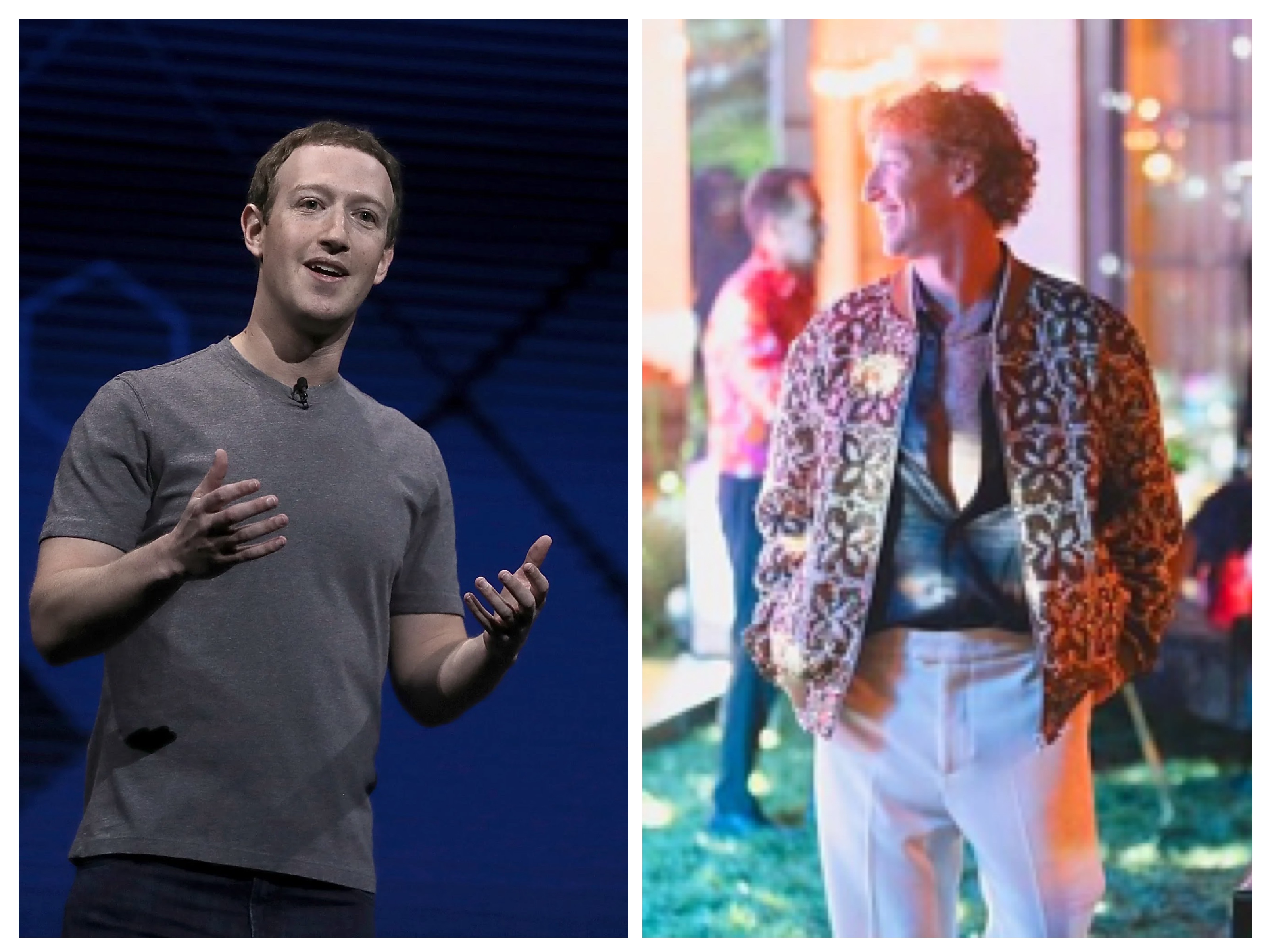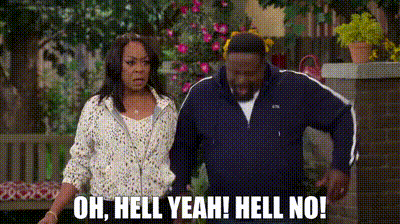Making quick choices isn’t just a skill—it’s a survival tactic in today’s world. With an endless stream of decisions consuming our time and energy, it’s no wonder we feel drained before noon. But what if you could sidestep the overwhelm and focus only on what matters? The key lies in understanding why we struggle with decisions—and using proven mental shortcuts to cut through the noise.
The Hidden Cost of Decision Overload
I recently watched a Johnny Harris video, Why You’re So Tired—and let’s just say it was all too relatable.
Harris takes us back 300,000 years, using the example of Mr. Johnny Caveman’s morning routine. And guess what? It was simple. Our ancestors made far fewer decisions compared to us.
Fast forward to 2024, and things are wildly different. Before I even make it to the office, I’ve faced more choices than our caveman friend would in a week: Should I hit the gym or skip it? Shirt or hoodie? Sneakers or boots? Gym shower or office shower? Latte or flat white? Oat milk? Regular milk? Tube or Uber? Bike!?

Fredkin’s Paradox1Fredkin’s Paradox – A decision-making agent might spend the most time on the least important decisions. kicks in here: the more similar two choices seem, the harder it is to make a decision.
And let’s be honest, most of these decisions don’t even matter. Yet, they eat away at our mental energy.
By some estimates, we make 35,000 decisions a day2The Cure for Decision Fatigue by WSJ.. No wonder many of us want to hit snooze before the day even starts.
🚨 Quick sidebar: Enjoying what you’re reading? Sign up for my newsletter to get similar actionable insights delivered to your inbox, for free!
Psttt, you will also get a free copy of my ebook, Framework for Thoughts, when you sign up!
Why Our Brains Aren’t Built for This
Evolutionarily, we’re running ancient hardware in a digital world.
Human brains developed over millions of years in hunter-gatherer societies where choices were limited and survival-driven. Agriculture, which radically altered our way of life, only arrived around 10,000 years ago—a blip on the evolutionary timeline3Seeking Wisdom: From Darwin to Munger by Peter Bevelin..
To frame it: if human history were a 24-hour clock, farming appeared at 11:55 PM, and smartphones? 11:59 PM.

Our caveman brain simply wasn’t designed to juggle 35,000 daily decisions. That’s why many of us wake up already exhausted.
We have Paleolithic emotions, medieval institutions, and godlike technology.
Edward O. Wilson
Mental Shortcuts: Using Razors for Quicker Choices
Faced with endless choices, what’s the solution?
One option is to follow Zuck’s playbook. Not the gold-chain-wearing, surfboarding, post-software-upgrade Zuck we know now—but the early, grey-shirt-and-jeans version.

Simplifying choices, like wearing the same thing every day, helps reduce decision fatigue.
But let’s be real—that’s not feasible for most of us. We are—all of us—always one Google search away from dozens of potentially meaningless decisions.
So, what’s the alternative? Enter philosophical razors—simple mental shortcuts designed to trim down your choices so you can make quicker decisions.
These razors, rules of thumb, act as shortcuts, helping to shave off unnecessary overthinking. While they aren’t foolproof, they often provide the clarity needed to keep moving forward.
It’s important to remember: not all choices are decisions. Choices are casual picks from a range of options, but a decision requires deliberate thought.
In a world flooded with decisions, the goal isn’t to eliminate every choice but to figure out which ones matter—and which you can let go.
It’s like using a compass: helpful most of the time, but you could end up off course.
✂️ Hitchens’ Razor: Cut the Nonsense
If someone can assert something without evidence, you can dismiss it without evidence.
It’s a great mental filter, especially when your uncle on WhatsApp starts throwing out conspiracy theories.
It says that if someone’s making a claim, the burden of proof is on them. If they can’t provide evidence to back their claim, don’t waste your mental bandwidth—dismiss it.
For instance, imagine you post a well-researched critique of Tesla online, only for a horde of Elon fanboys to come after you. Hitchens’ Razor tells you to ignore the trolls and engage only with those who bring facts to the table.
Hitchens’ Razor helps you choose whom to ignore, but what about finding the people actually worth your attention?
🐢 The Unlikely Champion Razor: Pick the Underdog
If forced to choose between two options of seemingly equal merit, choose the one that doesn’t conform to expectations.

Here’s a thought experiment from the famous Nassim Taleb:
Say you had the choice between two surgeons of similar rank in the same department in some hospital. The first is highly refined in appearance…The second one looks like a butcher…
Now, if you had to choose between the two. Who will you choose? 🤔
The majority of people will choose a surgeon with a refined appearance. Why? Because authority bias has a strong effect. We are most easily influenced by those we see as both knowledgeable and trustworthy.
Interested in finding out more about Authority Bias? Read my article.
⏳ Regret Minimization Framework: Think Like Future You
If you’ll regret not doing it at 80, do it now.

Jeff Bezos used this framework when deciding whether to start Amazon. Instead of focusing on potential failure, he looked at his future self and realised he’d regret not trying more than failing.
The opinion you should care about most is your future self.
The Regret Minimization Framework helps you project yourself into the future, minimise the regrets of missed opportunities, and make good long-term decisions.
Another important decision-making framework popularized by Jeff Bezos is the One-Way and Two-Way Doors.
But what about short-term decisions?
🙅♂️ Hell Yeah or No: Get Ruthless with Your Time
If you’re not saying “HELL YEAH!” about something, say no.
Derek Sivers says, we are all overcommitted, and this razor helps you trim the fat from your schedule.
When you say no to most things, you leave room in your life to really throw yourself completely into that rare thing that makes you say “HELL YEAH!”4Derek Sivers article on Either It’s Hell Yeah or No.
If you’re not excited (HELL YEAH, excited!) about that Friday night dinner plan, just say no.

By the way, Derek Sivers’ How To Live is one of my favourite books. You can check out my book recommendations here 👇🏽
🍻 Grab That Drink Razor: Opt for Change
Whenever you can’t decide which path to take, pick the one that produces change.
This razor operates on the idea that change increases your chances of encountering serendipity—those lucky, unexpected moments that can shape your future.
When you show up, you can get lucky. Read my article on increasing luck surface area.

You won’t get lucky watching TV and ordering pizza alone. Going out, meeting new people, and grabbing a drink will significantly improve your chance of change.
If you’re chasing change, you’ll boost your chances of getting lucky by placing more bets. But not all bets are created equal—so how do you know which ones are worth it?
🎯 Asymmetrical Bets Razor: Go Big Where It Matters
If the cost of potential payoff is massively higher than the cost of the act, place the bet.

Naval Ravikant provides some great examples of asymmetric bets:
- Starting a business
- Creating a book, podcast, or video
- Going on dates
- Moving to a big city
- Reading a book
The cost of failure varies (quitting your job to start a company? High stakes. Picking up a classic novel? Low), but the potential payoff makes these bets worth taking5Placing asymmetric bets..
Mental Shortcuts: Shave Through the Clutter
In a world overflowing with choices, clarity isn’t about making the perfect decision. It’s about trimming unnecessary options and focusing on what truly matters.
Mental shortcuts (or razors) won’t solve every dilemma, but they’ll help you navigate life with less stress—and a lot more efficiency.
Because sometimes, the best choice is the quickest one.
Footnotes:
- 1Fredkin’s Paradox – A decision-making agent might spend the most time on the least important decisions.
- 2The Cure for Decision Fatigue by WSJ.
- 3Seeking Wisdom: From Darwin to Munger by Peter Bevelin.
- 4Derek Sivers article on Either It’s Hell Yeah or No
- 5




